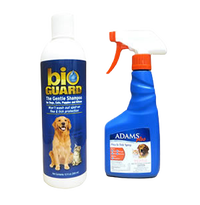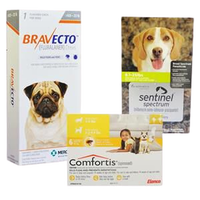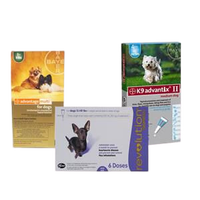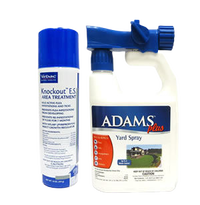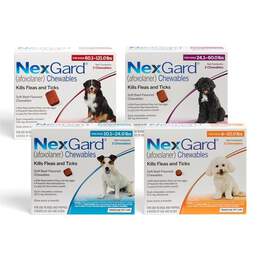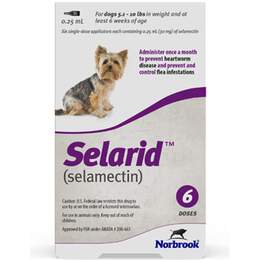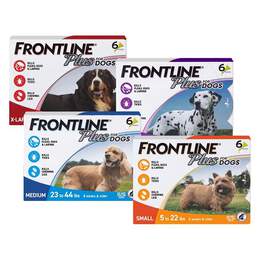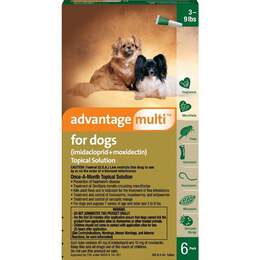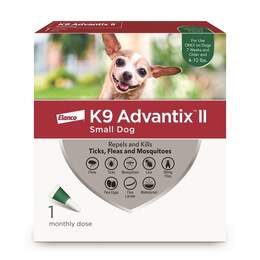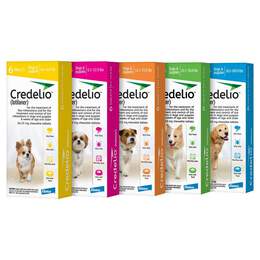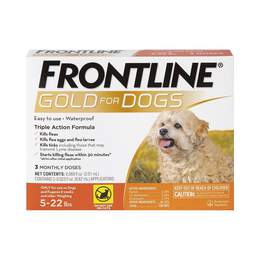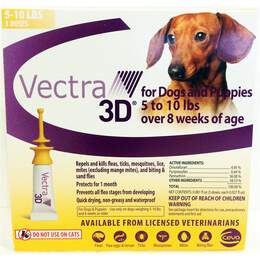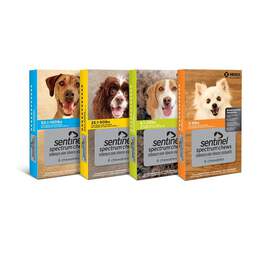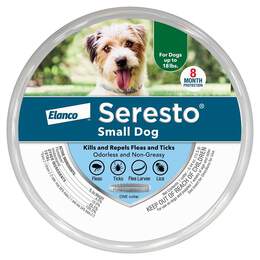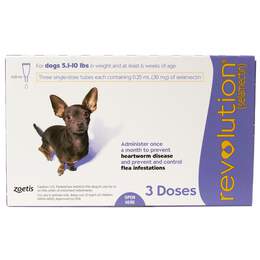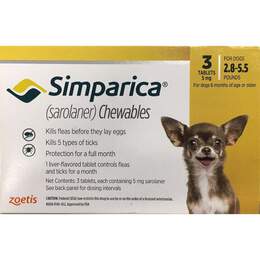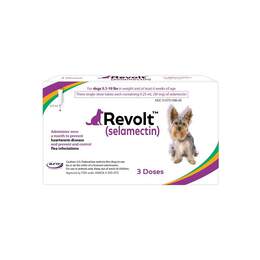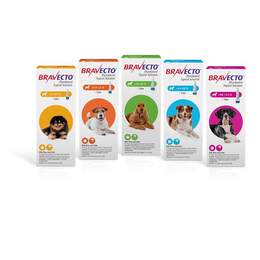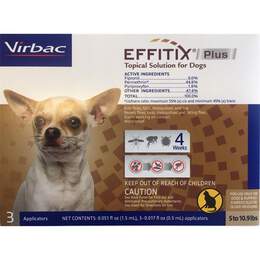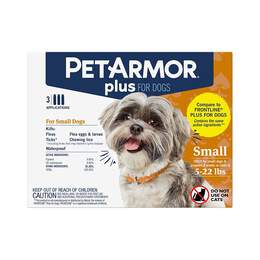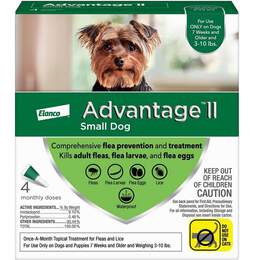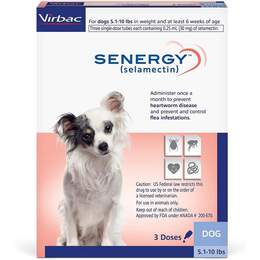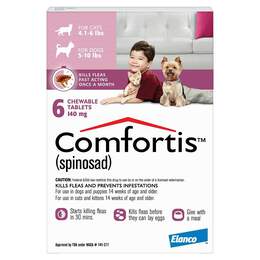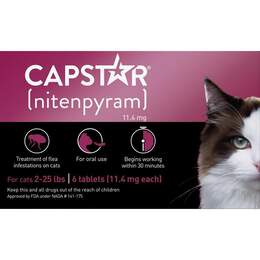Flea and Tick Treatment for Dogs
Featured Categories
FLEA AND TICK TREATMENT FOR DOGS IS ESSENTIAL
If you’re a dog owner, you’ve probably had at least one experience with fleas or ticks. They’re harmful nuisances that wreak havoc on your home, yard, and dog. Ticks carry harmful diseases that range from mild to life-threatening. Fleas bite your dog, leaving irritation that can cause your dog to scratch and bite. This causes other issues, including hair loss or skin infection. Fleas also carry worms. Finding the best flea and tick medicine for dogs is imperative to flea and tick prevention. You may be most familiar with topical treatments, but oral medications are also highly effective.
TYPES OF FLEA & TICK PREVENTION FOR DOGS
There are so many different flea and tick preventives available for dogs these days, that it can be difficult to know which one is right for your pet. Here’s a quick look at the different types of products and their benefits. If you own more than one dog, apply flea and tick treatments on the same schedule. This helps prevent cross infestation.
ORAL FLEA MEDICATIONS
There are a number of options for flea and tick medicine for dogs. Some medications treat and prevent fleas only, others work to prevent both fleas and ticks, and some even prevent certain types of worms. Oral flea treatment is an extremely effective way to treat and prevent flea infestations. A mess-free alternative, oral medications can provide a more broad-spectrum approach to flea treatment and prevention.
Some of the top-recommended flea pills for dogs are Bravecto, Trifexis, Nexgard, Sentinel, Comfortis, Simparica, Sentinel, Capstar, Credelio, and Advantus. Allivet offers all of these top-of-the line options. These incredible products are well-loved by veterinarians for offering the best flea and tick treatment for dogs. You may want to consider factors such as the age of your dog, whether you’d prefer a chewable or a tablet, and the needs of your dog. Are you just looking for flea treatment, or would you prefer something more comprehensive? Answering these questions can help you decide which of these products to choose. Allivet offers all of the options for the best flea treatment for dogs.
TOPICAL FLEA MEDICATIONS
There are several great options for topical flea treatment for dogs on the market. From spot-on treatments to flea collars, Allivet offers a wide range of options. Topical treatment options include Revolution, Frontline, Advantage, K9 Advantix, Seresto, and more. Topical treatments are popular options and are easy to apply or use on your dog, as long as you follow the directions closely.
Considerations for topical flea treatment are numerous. You might wonder, what is the most natural flea treatment for dogs? What is the safest flea treatment for dogs? Which option lasts the longest? Which one is the easiest to work with? Deciding which factors matter most to you will help you choose from Allivet’s wide range of topical flea treatment options.
FLEA SHAMPOOS
Allivet offers a number of flea and tick shampoo options. Sprays and shampoos are convenient options for flea treatment for dogs. Pet owners enjoy the ease of sprays, and washing your dog with flea shampoo can be an effective treatment option. From Frontline Spray to Adams Plus Flea & Tick Shampoo, Allivet carries a great selection of treatments, including natural products.
TREATING YOUR YARD AND HOME FOR FLEAS
Fleas can be hard to manage once they enter your home or yard. Flea and tick yard sprays can be an incredibly effective option for difficult infestations. Feral animals, bushes, and overgrown grass are just a few common sources of fleas.
Fleas also love to make your home their own, which is why home flea treatment for dogs can be so beneficial. Vet-Kem and Adams are just a couple of the home and carpet flea treatment options Allivet carries.
No matter what type of treatment you’re looking for, Allivet has the best options for flea treatment for dogs. See Allivet's Flea and Tick chart to find which flea and tick treatment is best for your pet.
PROPER FLEA AND TICK PREVENTION FOR DOGS
The right flea and tick prevention medicine can keep your dog safe from pests that may cause health issues. Fleas and ticks are just about anywhere your pet plays and spends time outdoors – at the park, on walks, and in the yard, and especially with other dogs.
IMPORTANCE OF FLEA MEDICINE FOR DOGS
Many dogs are allergic to flea saliva. When bitten, these dogs suffer from irritated, itchy, and inflamed skin. If your dog has a severe reaction, they may end up scratching their skin raw, causing hair loss and scabs that could become infected.
In addition, fleas can cause internal problems for your pet. If your dog swallows fleas, they may develop tapeworms, a parasite that causes dogs to lose weight and become malnourished. Small or young dogs run the risk of developing anemia when flea bites lower their red blood cell counts. Left untreated, this can be fatal. Prompt veterinary care is required in these cases. Flea medicine for dogs can help keep your pet safe from diseases transmitted through flea bites.
IMPORTANCE OF TICK MEDICINE FOR DOGS
Since ticks latch on and feed, they can cause irritation and skin redness at the site where they feed. If ticks feed for too long, the dog could develop anemia.
However, the health risks from tick bites are even more severe than those of fleas. Some female ticks transmit a virus that can cause a rare form of paralysis. More common, though, and the most significant health risks to dogs are Lyme disease and Rocky Mountain spotted fever transmitted by tick bites. Lyme disease may cause a dog to develop achy, swelling in the joints and arthritis. Rocky Mountain spotted fever can cause fever and make it hard for your dog to walk, along with other concerning symptoms.
These diseases can also be transmitted to humans by ticks, so using tick medicine for dogs to keep an infestation from happening protects not only your pet but your family.
ASSESS YOUR DOG’S RISK
All dogs are at risk of being bitten by fleas and ticks, but some factors increase the risk. Where you live comes into play since fleas and ticks love warm, humid climates. This is the ideal environment for these parasites. However, living in a cooler climate doesn’t mean you don’t need flea products for dogs, ticks and fleas live in all climates.
The season may make a difference since these pests are usually a bigger problem in the warmer months. However, if you live in a temperate zone, this may mean that flea and ticks season lasts all year long.
Even if you live in an area where the temperature drops in the fall and winter, fleas and ticks often hang around under decks and in garages and sometimes hitch a ride on wild animals. Raccoons, rats, opossums, feral cats, and other wildlife are often carriers of fleas and ticks. If you have a lot of these types of animals where you live, your dog is at greater risk, and you should consider tick treatment for dogs year-round.
Dogs that spend a lot of time outdoors are at higher risk, and often dogs who go to a groomer will come home with unwanted passengers. No matter where you live or what your dog’s habits are, if you are not using flea and tick prevention, your dog is at risk of picking up fleas and ticks.
FAQS ABOUT FLEA & TICK PREVENTION MEDICATIONS FOR DOGS
How important are age and weight when choosing flea and tick prevention?
Most flea and tick medicines can be used on puppies older than six weeks. However, some longer-lasting flea medications, such as Bravecto, specify that the dog must be at least six months old. Your veterinarian can advise you on whether or not your puppy is a good candidate for flea control.
Once your puppy has reached the age specified on the flea and tick meds’ packaging, their weight is also a factor. The larger the dog, the stronger the dose they will need to be free of ticks and fleas. Smaller dogs should get a smaller dose, since proper dosing is key to preventing side effects and giving your dog the right amount of protection.
Why isn’t the topical flea and tick prevention product I used working?
There are several reasons a topical product isn’t working the way you expected it to. If the topical was applied to the dog’s fur and not their skin, it won’t be fully absorbed, and therefore it won’t be effective. However, you shouldn’t try to rub it in or touch your pet until the topical dries, you might accidentally absorb it through your skin. If you get any flea preventive product on your skin, wash the area thoroughly with soap and water.
In addition, if you give your pet a bath within three days of applying topical flea and tick medicine, you run the risk of washing it off. And lastly, make sure your pet’s skin is soft and healthy before applying, the treatment may not absorb as well if your dog’s skin is dry, thick, or rough. Read and follow all directions on the flea prevention’s packaging to get the most efficacy.
Is it okay to use dog flea and tick prevention medication on a cat?
No, this can be very dangerous for your cat. It could cause seizures, neurological issues, coma, and even death. Flea and tick meds are species-specific, and cats are more sensitive to these treatments. If you accidentally put a dog flea product on your cat, contact your veterinarian immediately.


